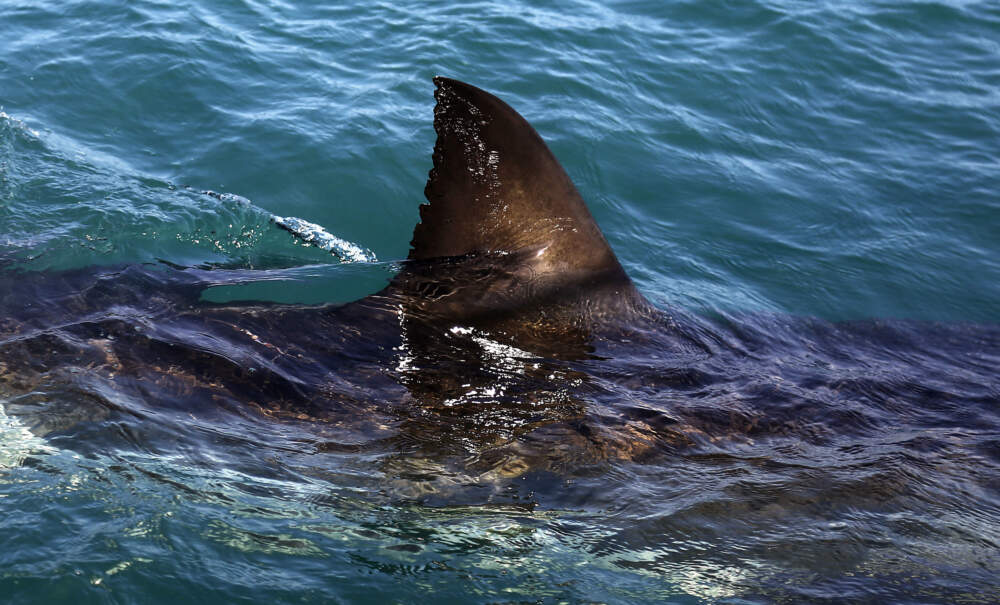Advertisement
Cape Cod researchers track white shark deep into the Gulf of Mexico
Resume
A shark tagged by Massachusetts researchers is swimming farther into the Gulf of Mexico than any tracked white shark has ever before.
The Chatham-based Atlantic White Shark Conservancy partnered with charter boat Outcast Sport Fishing to give the shark four high-tech tags on Dec. 8 off Hilton Head, South Carolina.
One of the tags pings a satellite so researchers with her location anytime she nears the surface of the water. This is how researchers discovered the 14-foot shark, named LeeBeth, is now swimming off the cost of Matamoros, Mexico, more westward into the Gulf than they've ever seen.
"She's been a groundbreaking shark in a lot of ways," conservancy scientist Megan Winton told WBUR's Radio Boston. Winton was on the boat when LeeBeth was tagged and has been tracking her movements ever since.
The two-ton female white shark has traveled more than 2,000 miles since she was first tagged, Winton said.
Along with the satellite tracking tags, the research tagged LeeBeth with a camera.
"It's essentially like we're giving a fancy GoPro or a smartphone to a white shark," said Winton.
Winton said LeeBeth is the first shark captured in southeastern waters to be outfitted with this kind of tech. The camera, which also contains sensors that record the shark's movements and environment 20 times a second, was placed on her dorsal fin and designed to detach within 24 hours.
When the camera detached, Winton received coordinates 40 miles off shore to collect the device. The camera captured footage of the shark swimming through the water from a first-person view of the ocean. The conservancy has posted pieces of the footage to their social media accounts.
Not only is the footage cool to look at, but Winton said the visuals and data collected are important for shark science as a whole. Sharks usually leave the cold waters off the Cape to spend their winters down by the Carolinas, Florida and the Gulf of Mexico. This footage provides scientists with a "first glimpse into the life of a white shark in their overwintering area," Winton said.
And as the northern waters begin to warm again, it's possible that LeeBeth will be among the population of white sharks that congregate off Massachusetts. Winton calls Cape waters a "very hopping white shark hotspot."
If you're interested in LeeBeth's movements (or hoping to avoid her this summer) you can track her and the other white sharks monitored by the conservancy on their Sharktivity app.
This segment aired on March 1, 2024.


